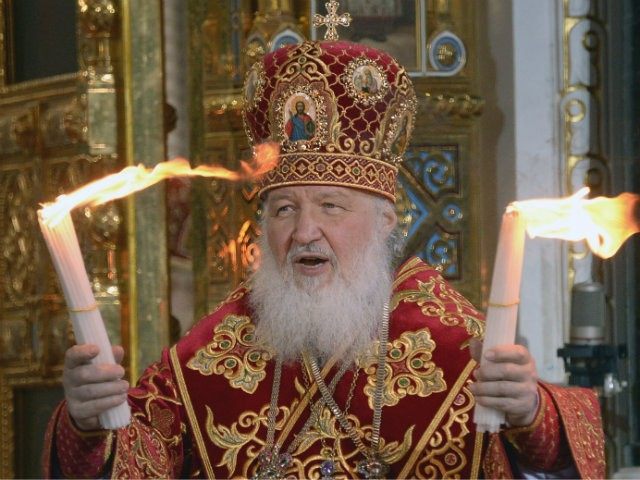On February 12, history will be made as Francis becomes the first pope ever to meet with the spiritual leader of Russian Orthodoxy, Patriarch Kirill of “Moscow and All Russia.”
For over 1,000 years eastern and western Christianity have been divided, ever since the Great Schism split the Church in 1054 when the leaders of each side mutually excommunicated each other.
The two church leaders hope to take a step forward in bridging the gap that separates them, and have agreed to meet on neutral turf, taking advantage of the Pope’s upcoming trip to Mexico to stop off at the island of Cuba for an encounter in Havana.
“This meeting of the Primates of the Catholic Church and the Russian Orthodox Church, after a long preparation, will be the first in history and will mark an important stage in relations between the two Churches,” a joint statement read.
Francis already planned to travel to Mexico February 12-18, but added a stopover in Cuba to be able to meet Kirill at the Havana airport, where they will speak privately for about two hours and then sign a joint declaration, the Vatican said.
“This event has extraordinary importance in the path of ecumenical relations and dialogue among Christian confessions,” said Federico Lombardi, the Vatican spokesman.
For many years such a meeting has been discussed and even attempted, but never carried out. Pope John Paul II in particular reached out to leaders of the Russian Orthodox Church but his efforts to procure an invitation to Moscow were continually rebuffed.
Pope Francis continued to make overtures to Moscow and in November 2014, reportedly told Kirill: “I’ll go wherever you want. You call me and I’ll go.”
On this occasion, Kirill planned to be in Cuba on an official visit, his first to Latin America as patriarch, and he accepted Francis’ invitation.
It is often said that leaders of the Russian Orthodox Church fear being overwhelmed by the Roman Catholic Church, since Catholicism has always enjoyed great respect among their own faithful. The Orthodox Church was widely understood to have colluded with the Kremlin during the years of the Soviet Union, whereas the Catholic Church never bowed to Communism.
Because of Russian Orthodoxy’s distrust, the Vatican chose never to name a Catholic bishop in Moscow to avoid the impression of encroachment on the turf of the Orthodox.
In 2002, in fact, passport officers refused entry to a Roman Catholic bishop who was returning to his diocese in Russia. Bishop Jerzy Mazur, a Polish citizen and one of only four Catholic bishops in Russia, arrived at the airport with a valid visa, but was forced to fly back to Warsaw, Poland, which was seen by many as part of an anti-Catholic campaign within Russia.
Patriarch Kirill, however, is regarded as more moderate than his predecessors in his stance toward Rome and prior to his elevation to Patriarch in 2009, he served as chair of the Russian Orthodox Church’s Department for External Church Relations, meaning that he was responsible for working toward a better understanding with other Christian churches.
Rome has continued reaching out to Moscow through symbolic gestures, such as inviting a representative from the Moscow Patriarchate to speak at all the recent Vatican synods of bishops.
Pope Francis also has the advantage of being a Latin American, and therefore historically much less threatening than a Pole (John Paul II) or a German (Benedict XVI), whose nations were habitually at odds with Russia.
Moreover, the indiscriminate persecution of all Christians, including Catholic and Orthodox, in the Middle East and Africa has effectively brought the two churches closer together, in what Pope Francis has termed an “ecumenism of blood.”
Last November, the Pope said that in our times, “witness to Christ, even to the shedding of blood, has become a shared experience of Catholics, Orthodox, Anglicans, Protestants, Evangelicals, and Pentecostals, which is deeper and stronger than the differences that still separate our churches and ecclesial communities.”
After Islamic State militants slit the throats of 21 Coptic Christians on a beach in Libya in February 2015, he made a similar statement.
“It makes no difference whether they be Catholics, Orthodox, Copts or Protestants,” Francis said. “They are Christians! Their blood is one and the same. Their blood confesses Christ.”
The Pope drew inspiration from this witness to urge Christians to work harder toward unity.
“As we recall these brothers and sisters who were killed only because they confessed Christ,” he said, “I ask that we encourage one another to go forward with this ecumenism that is emboldening us, the ecumenism of blood.”
“The martyrs belong to all Christians,” he added.
Follow Thomas D. Williams on Twitter @tdwilliamsrome

COMMENTS
Please let us know if you're having issues with commenting.